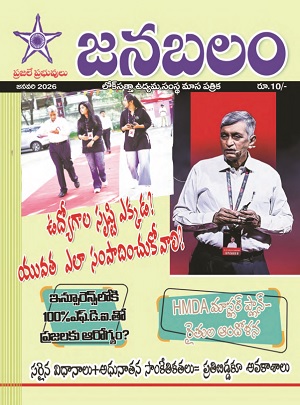The attempt of political parties to deny people knowledge about their working is nothing but a conspiracy against democracy and voters, commented Lok Satta Party national President Dr. Jayaprakash Narayan today.
In a media statement, Dr. JP said that the Lok Satta Party will join others in challenging the Government's bid to exempt political parties from the ambit of the Right to Information (RTI) Act and added that he has no doubt the judiciary will uphold the Central Information Commission order.
Dr. JP pointed out that political parties are not private estates but merely vehicles for political participation of citizens. A political party is no different from any other voluntary organization or civil society group. It is a free association of citizens for a collective purpose. The RTI Act covers all voluntary organizations that receive substantial assistance from the Government. The Administrative Reforms Commission, of which he was a member, defined what constitutes substantial assistance. The assistance is substantial if it is Rs.1 crore or more or constitutes 50 percent of the operational budget of the organization.
Dr. JP underlined that a political party is more than a voluntary organization in that it seeks people's votes, aspires for power, wants to influence how the Government spends public money and takes part in law making. Outside the legislature and electoral politics also, even small parties have enormous power over people's lives. They can paralyze life and disrupt economic activity by organizing bandhs and other agitations. It will be the height of absurdity if political parties claim immunity from public scrutiny under the RTI Act.
Dr. JP added that bringing political parties under the RTI Act does not mean that their internal deliberations or strategies must be made public. But the people have a right to know their norms for party membership, election of leaders, choice of candidates in elections and collection of funds. They have an obligation to disclose the basis for articulating certain policies and how they propose to raise funds for implementing them.
Saturday, June 29, 2013
Lok Satta to fight against exempting political parties from RTI Act
Subscribe to:
Post Comments (Atom)





No comments:
Post a Comment